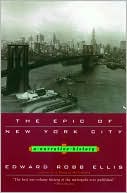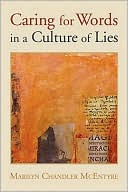The Social Network: A Review
“You don’t get to 500 million friends without making a few enemies.”
 David Fincher’s highly anticipated film, The Social Network, has been advertised as a story about the origins of Facebook, the social networking website that now boasts over 500 million users. But at its heart it is a story about the origins of the site’s creator – the brilliant, arrogant, and entrepreneurial Mark Zuckerberg (played by Jesse Eisenberg).
David Fincher’s highly anticipated film, The Social Network, has been advertised as a story about the origins of Facebook, the social networking website that now boasts over 500 million users. But at its heart it is a story about the origins of the site’s creator – the brilliant, arrogant, and entrepreneurial Mark Zuckerberg (played by Jesse Eisenberg).Based on Ben Mezrich’s 2009 bestseller The Accidental Billionaires, the movie is fast paced and carried by sharp, witty dialogue. Aaron Sorkin’s screenplay prevents this story from being just another film about a down-on-his-luck-genius who becomes an accidental, overnight billionaire. Rather there is something about the storyline that is exciting, energetic, and suspenseful. The rise to fame is never easy and the view from the top can be lonely.
The Social Network artfully jumps from flashbacks of Zuckerberg’s college years (when he invented Facebook in his Harvard dorm room) to an office where Zuckerberg testifies in depositions in two lawsuits. One involves the Winklevoss brothers (both played by Armie Hammer), who accuse Zuckerberg of stealing their idea for a social networking site. The other involves his best and only friend Eduardo Saverin (played by Andrew Garfield). Saverin, Facebook’s former CFO, lent Zuckerberg money to start up the website, but was later frozen out. While the audience might sympathize with the claims of Saverin and the Winklevoss twins, Zuckerberg at one point exclaims, “If you were the inventors of Facebook, you would have invented Facebook.” Essentially, this is the story of a man who had a brilliant idea, made that idea a reality, and then found himself the victim of everyone who wanted a piece of his success.
While many of the scenes are lighthearted and there are a few laugh-out-loud moments, the film is actually quite serious and becomes a cautionary tale about the costs of fame. Though a brilliant computer programmer, Zuckerberg was fallible and made a few regrettable decisions along the way. At one point, he follows some bad advice and betrays his best friend for the sake of Facebook. By the end of the film, Zuckerberg may have 500 million Facebook friends, but he finds himself terribly alone. This is one of the subtle messages of the movie – thousands of virtual friends on the Internet cannot substitute for meaningful relationships in everyday life.
And, thus, the movie is a frank portrayal of our culture. Although it is a time of such great opportunity when a young twenty-six year old can become a billionaire, it is also a time of great depersonalization. Perhaps The Social Network has performed so well at the box-office because it is not infected by the culture’s depersonalization. It gives the audience three dimensional characters that we can understand and empathize with: the Winklevoss brothers who had good ideas but not enough drive to see them through; Eduardo Saverin who could not handle living life in the fast lane; Sean Parker (played by Justin Timberlake), the former co-founder of Napster, who jumped onboard the Facebook bandwagon and was destroyed by his own success. But most importantly it is about the creative genius of Mark Zuckerberg and a fascinating glimpse into the mind of an inventor.
Watch the trailer here.
Labels: Movie Reviews
Posted by Nicole Bianchi at 5:19 PM
|
![]()











 This is life seen through the eyes of a writer. A blog that critically examines literature, music, and film. NB, initials which coincidently coinside with the Latin words "nota bene" (mark well), belong to the blog poster, a bibliophile who likes to haunt libraries and book stores, talk about all things bookish, and ramble at any length on things regarding literature. Many of the articles posted here were written as essays for high school and college.
This is life seen through the eyes of a writer. A blog that critically examines literature, music, and film. NB, initials which coincidently coinside with the Latin words "nota bene" (mark well), belong to the blog poster, a bibliophile who likes to haunt libraries and book stores, talk about all things bookish, and ramble at any length on things regarding literature. Many of the articles posted here were written as essays for high school and college.





